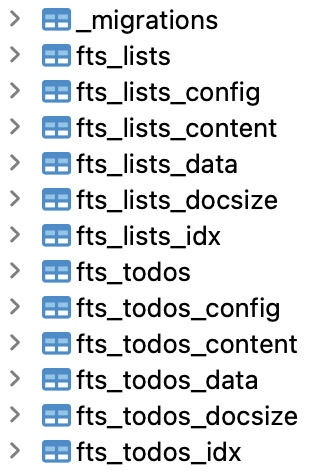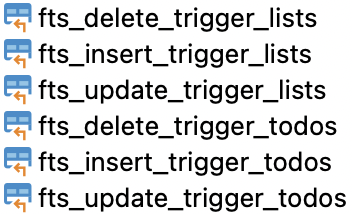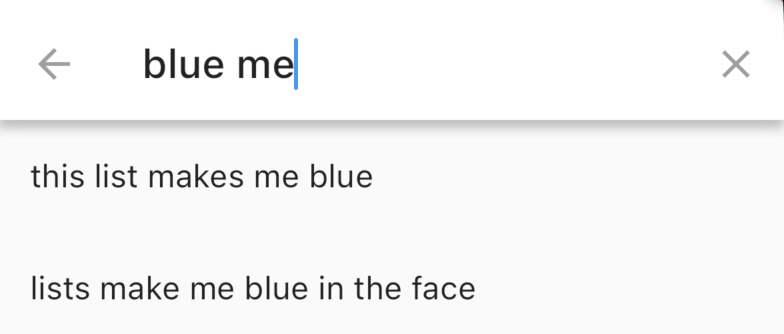// migrations/fts_setup.dart
/// Create a Full Text Search table for the given table and columns
/// with an option to use a different tokenizer otherwise it defaults
/// to unicode61. It also creates the triggers that keep the FTS table
/// and the PowerSync table in sync.
SqliteMigration createFtsMigration(
{required int migrationVersion,
required String tableName,
required List<String> columns,
String tokenizationMethod = 'unicode61'}) {
String internalName =
schema.tables.firstWhere((table) => table.name == tableName).internalName;
String stringColumns = columns.join(', ');
return SqliteMigration(migrationVersion, (tx) async {
// Add FTS table
await tx.execute('''
CREATE VIRTUAL TABLE IF NOT EXISTS fts_$tableName
USING fts5(id UNINDEXED, $stringColumns, tokenize='$tokenizationMethod');
''');
// Copy over records already in table
await tx.execute('''
INSERT INTO fts_$tableName(rowid, id, $stringColumns)
SELECT rowid, id, ${generateJsonExtracts(ExtractType.columnOnly, 'data', columns)}
FROM $internalName;
''');
// Add INSERT, UPDATE and DELETE and triggers to keep fts table in sync with table
await tx.execute('''
CREATE TRIGGER IF NOT EXISTS fts_insert_trigger_$tableName AFTER INSERT
ON $internalName
BEGIN
INSERT INTO fts_$tableName(rowid, id, $stringColumns)
VALUES (
NEW.rowid,
NEW.id,
${generateJsonExtracts(ExtractType.columnOnly, 'NEW.data', columns)}
);
END;
''');
await tx.execute('''
CREATE TRIGGER IF NOT EXISTS fts_update_trigger_$tableName AFTER UPDATE
ON $internalName BEGIN
UPDATE fts_$tableName
SET ${generateJsonExtracts(ExtractType.columnInOperation, 'NEW.data', columns)}
WHERE rowid = NEW.rowid;
END;
''');
await tx.execute('''
CREATE TRIGGER IF NOT EXISTS fts_delete_trigger_$tableName AFTER DELETE
ON $internalName BEGIN
DELETE FROM fts_$tableName WHERE rowid = OLD.rowid;
END;
''');
});
}



